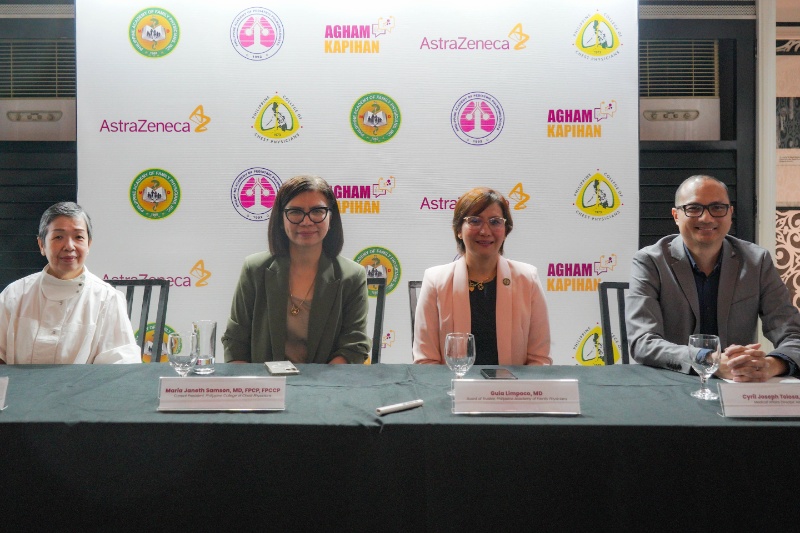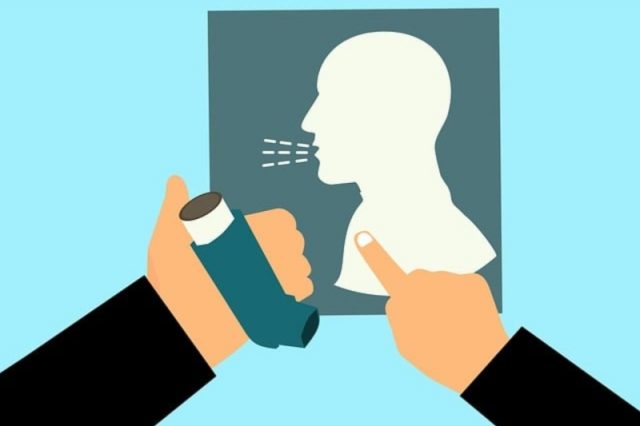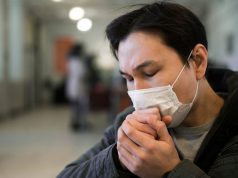A pediatrician said that addressing asthma early on is an “exciting time” to help children make peace with their condition and train them to control its symptoms.
In observance of National Lung Month this August, Agham Kapihan, a health-related media roundtable discussion, held in Makati City on August 15, shed light on the effective asthma care and management. The forum’s theme is “Make Every Breath Count: Experts Underscoring Better Asthma Care for Every Juan.”

During the discussion, Philippine Academy of Pediatric Pulmonologists president Anna Marie Putulin said dealing with asthma should be accompanied by a positive outlook so children could easily communicate their feelings with their elders.
“[I]t is concerning but it’s an exciting time to train children so their future will always be something positive. In pediatrics, we always look at asthma with positivity,” Putulin said.
Asthma, a major noncommunicable disease (NCD), is a chronic long-term disease of the lungs that causes inflammation and muscle tightening around the airways, which can lead to shortness of breath and trigger coughing, according to the World Health Organization.
Citing a 2022 study which shows that 50% of patients have uncontrolled asthma in Asia, Putulin said it is important to create a safe space for children ahead of time to encourage them to express their discomfort.
“What we want is they have already been trained while they are still children so the issue can already be addressed… We want a normal lifestyle [for them],” she said.
Joining Putulin in the discussion was Philippine College of Chest Physicians president Maria Janeth Samson, who said one of the most common myths about asthma that must be debunked is that it can be cured and outgrown.
“In any point in your life, it (asthma) can be triggered. It can quiet down from childhood up to adulthood but sometimes when you have respiratory tract infection, it can be triggered, or else, probably exposure to any pollutants,” she said.
Philippine Academy of Family Physicians trustee Guia Limpoco echoed the view, saying asthma must be considered a “family affair” because it can only be dealt through collective effort.
“We have to understand the misperception of the parents because sometimes they know how to [deal with the asthma] but when you check them it turns out to be wrong, so their (children) symptoms are not controlled,” Limpoco said.
“And then, we also have to advise them (parents), again, reiterating, [how to prevent] the triggers in asthma… They associate it with the dust and yet, they do not have the effort to remove these things. So, we have to tell them, it’s not just because of the cough and cold, but perhaps other things in your household that could trigger it,” she added.
Sixty-nine percent of asthma hospitalizations in the country stem from uncontrolled or partly controlled cases, data from global medical journal The Lancet showed.
Stating that asthma is not just an airway disease but an inflammatory problem, AstraZeneca Medical Affairs director Cyril Joseph Tolosa said the government and medical societies alike must reinforce policies that would “take asthma seriously.”
“We cannot do this alone. We provide the medicines, but it is not just about the medicines, it’s really about screening the patients, dosing them properly, and being able to [see] whether we can treat them properly… I hope that working with medical societies we’ll be able to have that conversation with the government to take asthma seriously,” he said.
Republic Act 11223 or the Universal Healthcare Law (UHC), was implemented during former president Rodrigo Duterte’s term in 2019 to supply health services to patients with diseases such as asthma.
The law has drawn criticism from several health agencies, including the World Health Organization, due to its “rushed” enactment since the country’s current health system is “still far from” servicing UHC in a comprehensive manner.
Meanwhile, Agham Kapihan is supported by AstraZeneca as part of its “commitment to improving the lives of millions of patients together with its partners across the healthcare ecosystem.”








